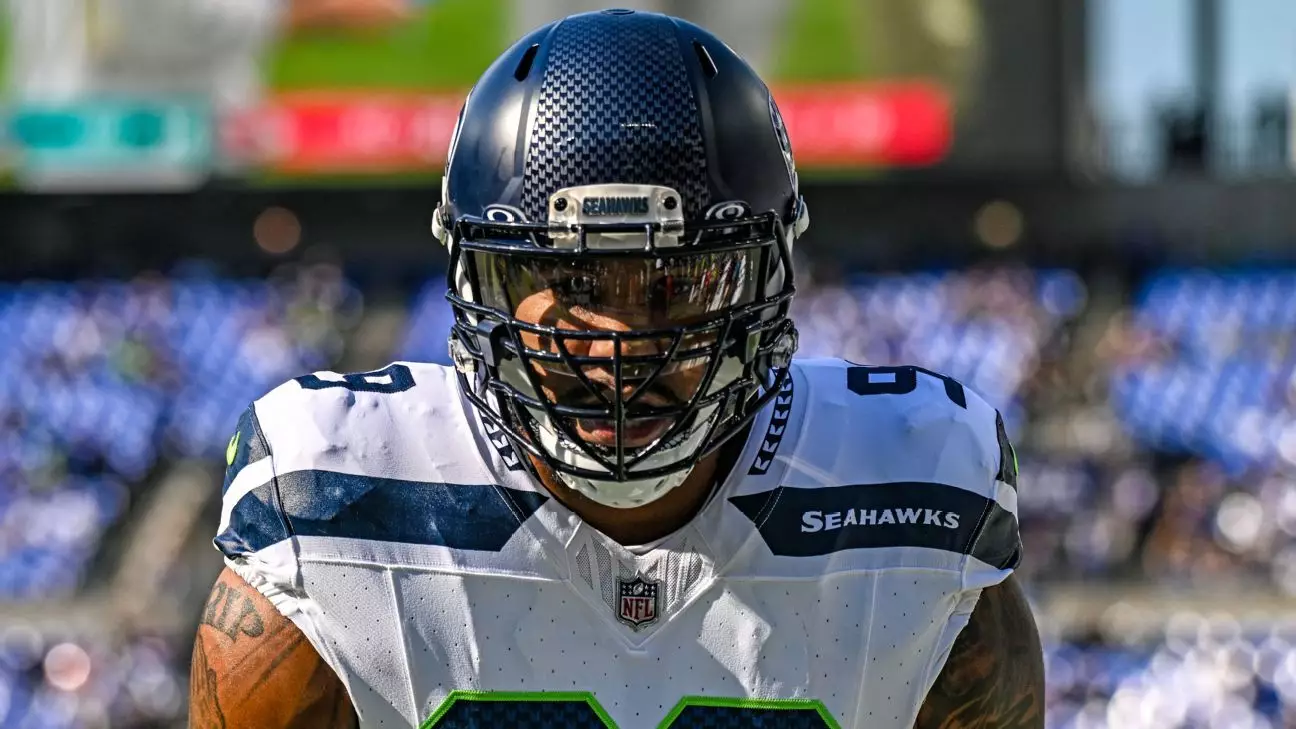The announcement of the Pro Bowl selection often sparks discussions around talent recognition, fairness, and the repercussions of such acknowledgments in the careers of NFL players. The Seattle Seahawks, with their distinctive blend of emerging and veteran talents, have recently faced this dichotomy firsthand. While cornerback Devon Witherspoon basked in the glow of his second consecutive Pro Bowl nod, defensive tackle Leonard Williams was left grappling with the injustice of being overlooked despite a standout season. This situation presents an opportunity to critically evaluate not only the selections themselves but also the broader implications of such results in the NFL.
Devon Witherspoon’s selection to the Pro Bowl marks a significant achievement, particularly considering it is his second consecutive honor in just two years since being drafted fifth overall in 2023. Witherspoon’s season has been solid, although his statistics may not scream ‚Pro Bowler‘ at first glance, lacking any interceptions and tallying just one sack. This raises questions about the criteria being utilized by voters. Is it performance metrics alone, or do contributions to a team’s overall success and influence on the field play a role in recognition?
For a player like Witherspoon, who portrays a promising future and has already established himself as a crucial member of the Seahawks’ defense, the Pro Bowl nod is both a personal triumph and a testament to his potential. His acknowledgment indicates a shift in how defenses are evaluated—perhaps emphasizing resilience, coverage skills, and the ability to contain offenses over traditional statistics.
Moreover, Witherspoon’s excitement to share the spotlight with his peers suggests a growing camaraderie among athletes in the league, especially as they navigate the pressures of recognition and success. However, it also illuminates the inherent flaws in the voting system when contrasting his achievements with those of Williams, highlighting the complexities that cloud player recognition in professional sports.
Conversely, Leonard Williams’ situation provides a profound narrative on the subjugated feelings of recognition in professional athletics. Williams expressed disappointment upon learning of his Pro Bowl snub, feeling that his impressive statistics, including 9 sacks, 15 tackles for loss, and an astounding interception return for a touchdown, warranted a selection. His emotional response demonstrates the weight that such acknowledgments carry within the league, affecting players beyond mere statistics—they tap into notions of legacy and recognition from peers, coaches, and, ultimately, fans.
The contrast between his performance and that of fellow defensive tackles who garnered selections is striking. Williams outperformed three of the selected players yet found himself on the outside looking in. This validates a recurring sentiment among players concerning bias or subjective motivations in the voting process. In his remark about being from a “major media market” previously and still facing a snub, Williams invokes the idea that public perception and market size could skew recognition.
Such feelings are echoed by other players, including quarterback Geno Smith, who implies that biases may permeate the Pro Bowl selection process, further complicating its integrity. Williams’ frustration resonates in the broader context of athletics, where performance does not always translate into rewards.
The pathways toward selecting players for prestigious events like the Pro Bowl need reexamination. Perhaps the league should consider revising its voting structure to incorporate a more diverse array of metrics that capture the fully dimensional contributions athletes make during their seasons. A system that recognizes both statistical achievements and intangible values—such as leadership and game influence—could yield a more accurate representation of talent.
In the meantime, the stories of Witherspoon and Williams present dual narratives of triumph and tribulation in the search for acknowledgment in professional football. Witherspoon embodies hope and potential, while Williams’ ordeal serves as a cautionary tale about the nuances of sports recognition. The dialogues surrounding these selections inspire further discussion on how the NFL—and perhaps sports in general—might navigate the complex realms of meritocracy and recognition in the ever-evolving landscape of competitive athletics.
The Pro Bowl’s implications extend well beyond mere celebration of talent. They echo with emotional resonance—a testament to the trials and triumphs of athletes striving for recognition amidst complex voting systems and potential biases, illuminating the delicate balance between individual achievements and collective acknowledgment in the world of sports.


Napsat komentář